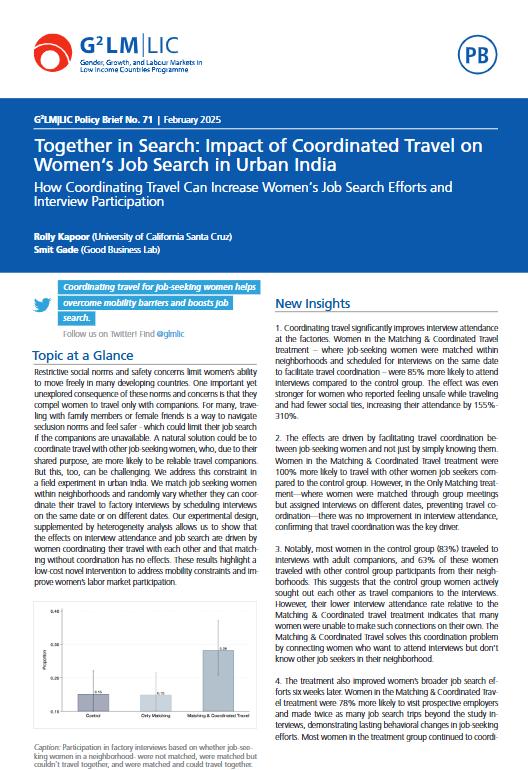Restrictive social norms and safety concerns limit women’s ability to move freely in many developing countries. One important yet unexplored consequence of these norms and concerns is that they compel women to travel only with companions. For many, traveling with family members or female friends is a way to navigate seclusion norms and feel safer – which could limit their job search if the companions are unavailable. A natural solution could be to coordinate travel with other job-seeking women, who, due to their shared purpose, are more likely to be reliable travel companions. But this, too, can be challenging. We address this constraint in a field experiment in urban India. We match job seeking women within neighborhoods and randomly vary whether they can coordinate their travel to factory interviews by scheduling interviews on the same date or on different dates. Our experimental design, supplemented by heterogeneity analysis allows us to show that the effects on interview attendance and job search are driven by women coordinating their travel with each other and that matching without coordination has no effects. These results highlight a low-cost novel intervention to address mobility constraints and improve women’s labor market participation.
